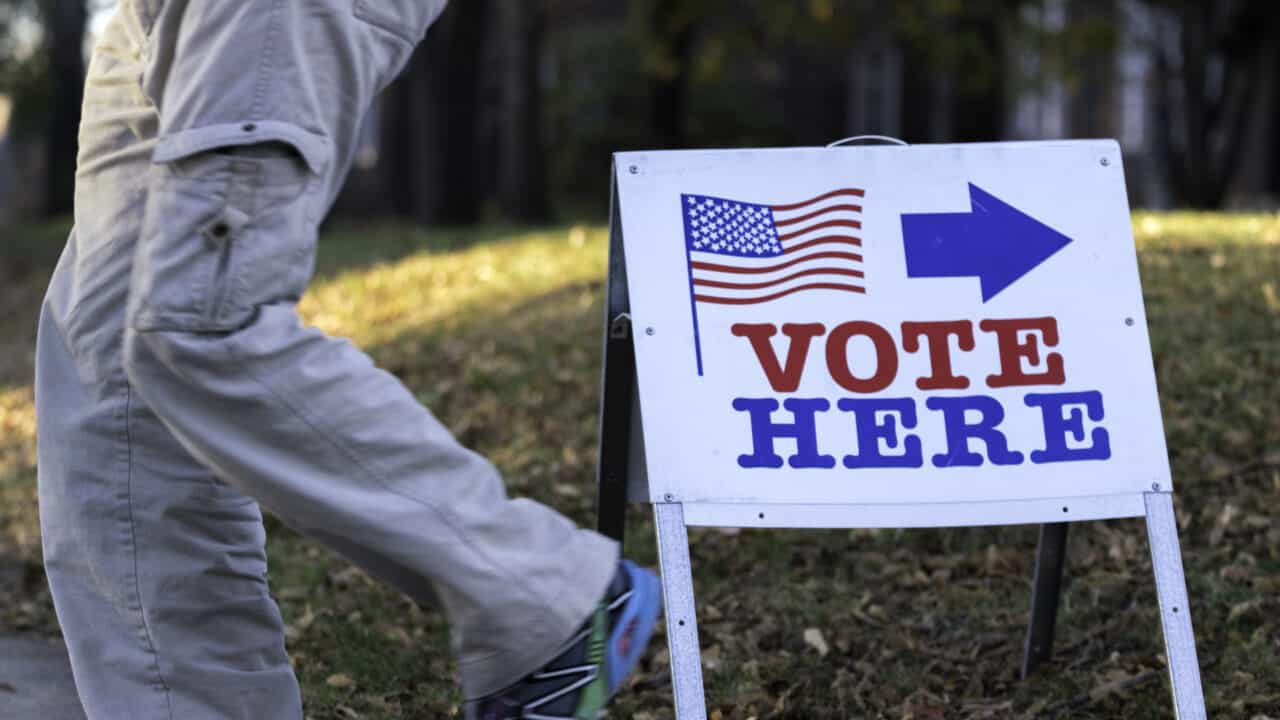 Vote Here Sign in Minneapolis, Minnesota by Lorie Shaull is licensed under CC BY-SA 2.0.
Vote Here Sign in Minneapolis, Minnesota by Lorie Shaull is licensed under CC BY-SA 2.0.
On November 8th, voters in several states weighed in on various legislative initiatives to alter election laws.
Many proposals would strengthen election integrity, aiming to ensure each vote is counted and not undermined by illegal practices. Meanwhile, other measures pushed radical revisions that would compromise the security of elections into the future.
Ranked Choice Voting
Nevada’s Question Three, a constitutional amendment establishing ranked choice voting and open primaries, squeaked its way through with 52.86% of voters backing the referendum. Ranked choice voting is an opaque, problematic system that adds confusion for voters and fails to accomplish what a more straightforward run-off system can. “In a time when we want to encourage more voter participation, we need to keep voting simple,” argued former California Governor Jerry Brown as he vetoed a ranked choice voting bill in 2016. “Ranked choice voting is overly complicated and confusing. I believe it deprives voters of genuinely informed choice.”
Pandemic-era ‘Free for All’ Elections Forever in Michigan
Perhaps the most dangerous ballot measure was Michigan’s overloaded Proposal Two, which passed with nearly 60% of the vote. The proposal introduces a list of constitutional amendments that undermine election integrity, including no-excuse absentee ballots, unmonitored drop box locations, and an affidavit option for those without photo ID. Additionally, the legislation legalizes charitable and in-kind donations to assist with running elections, “opening the door for political donors to influence how elections are administered in order to benefit their favored candidates.”
Voter ID
Arizona’s Proposition 309 was narrowly defeated by a margin of less than a percent. The measure would have required a date of birth and voter ID number for mail-in ballots and abolished the two-document alternative to photo ID for in-person voting. Although state restrictions on ballot harvesting were upheld by SCOTUS, enforcement is a tricky endeavor. Voter ID requirements would have substantially mitigated the detrimental effects of ballot harvesting and illegal voting.
Nebraska residents embraced the importance of voter ID for securing elections and keeping political interests away from the vote. Initiative 432 will make the presentation of ID when voting obligatory, allowing Nebraska to join the long list of states with an ID requirement.
Citizenship
Voters in Ohio have also championed election integrity by overwhelmingly passing Issue Two with 77.05% support, prohibiting noncitizens from voting in local elections. Ohio Secretary of State Frank LaRose reaffirms this sentiment. “American elections are only for American citizens, and the cities in other states that have granted non-citizens the right to vote in local elections are undermining the value of what it means to be an American. I have presided over naturalization ceremonies and know that for newly sworn-in American citizens, securing the right to vote is a treasured achievement – a right they have worked hard to achieve.”
Election Conduct
Alabama voters approved Amendment Four. The initiative, which secured nearly 80% of the vote, will require that any new legislation which alters the general election process be implemented at least six months before the next election. This legislative buffer period is a huge win for political minorities, protecting them from the tyranny of a supermajority by prohibiting the state legislature from bending the rules and implementing last-minute adjustments to the election process for their own electoral benefit. This proposal is particularly commendable for its proactive nature, as it preemptively addresses problems before they even exist.
Election Day 2022 resulted in wins and losses for state-level election integrity. As the nation becomes increasingly polarized and more evenly split along party lines, it introduces a necessity to secure state elections. Even minor defects in election systems have the potential to undermine democracy and tip the electoral scales. Regardless of partisan splits, voting is the most fundamental characteristic of democracy and should be treated as one of the most important rights to secure.

